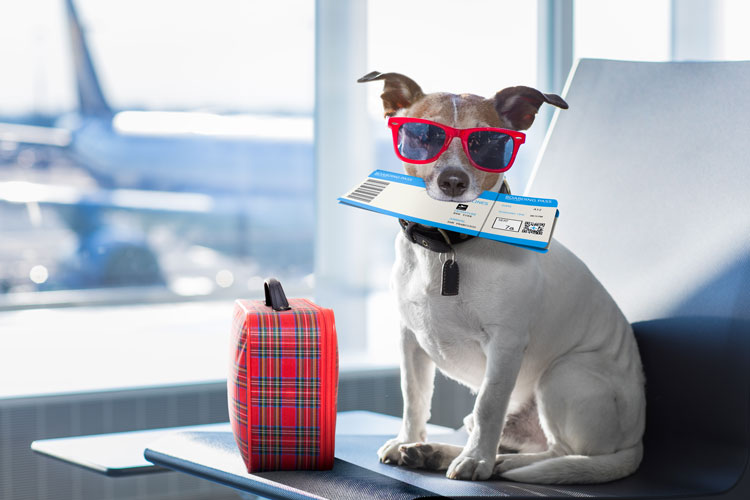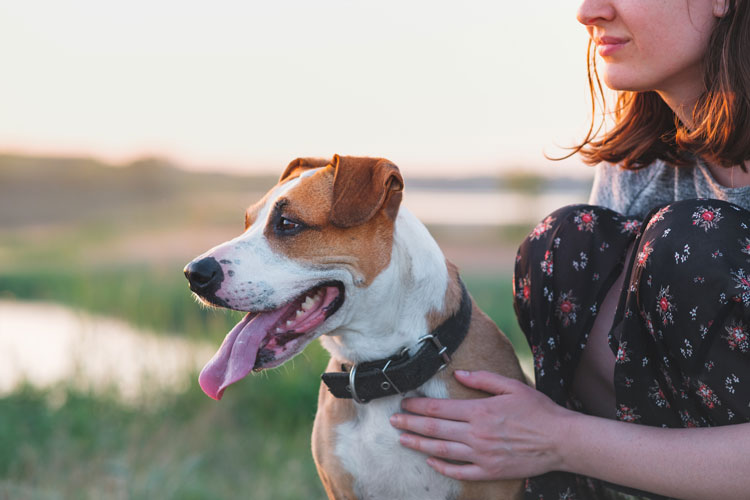The Coronavirus, which is also known as COVID-19, has changed travel as most knew it all over the world. Arrival and departure restrictions, social distancing, mandatory face coverings and other issues have made travel difficult, especially if you do so with an emotional support animal. Dogs are the most common ESA, and if you plan to fly with your companion, there are a few steps you can take to ensure your trip goes smoothly.
Choose an Airline
While most airlines have similar rules about allowing service or emotional support animals in the cabins of their planes, some have adjusted those rules to exclude certain species of animals. Southwest Airlines, for example, have a clause in their ESA regulations that forbids several different types:
- Rabbits
- Rodents
- Reptiles
Most exotic species are also banned from serving in ESA capacity for this airline. Other major air services, such as Delta, have similar policies.
While there are few limitations on dogs, you may want to call the airline of your choice to ask what they require of you and your ESA so there are no unpleasant surprises when you arrive at the airport. Preparing your animal ahead of time may allow it to continue on with you instead of having to endure temporary crating as baggage until your papers are verified.
Your ESA Letter
If you have not done so already, contact United Support Animals (www.unitedsupportanimals.org) to have your consultation with a licensed therapist and obtain your emotional support animal ESA Letter. Also registering your companion as an emotional support animal will assist in your travels as you will have the animals ID, collar, tag etc. to identify your animal and cure un-necessary questioning at the airport and gate.
If you can plan your trip in advance, add the letter and registration to your to-do list. Call or visit the United Support Animals website ask for an ESA letter and registration kit.
Update Your ESA Letter
If you previously obtained an ESA letter, double-check its validity before you buy your airline tickets. COVID-19 has made some travel restrictions tighter and being prepared with an updated letter may make things a bit smoother for you once you depart. Obtaining your ESA letter from United Support Animals is the fail-safe way to make sure you are getting the outcome need as they specialize in Emotional Support Animals and will shepherd you thru the process seamlessly.
Airlines require an ESA letter that is dated no more than a year from its original issuance date and that the contact information on the letterhead is current. If you think you might need a new letter or that yours might expire on a date during your trip, then contact United Support Animals. You may want to carry both the original letter and several copies, as carry-on items can get lost in the shuffle between planes or get left behind in airports.
Contact Hotels
Some hotels are operating at 50-75% capacity because of the Coronavirus, and even though emotional support dogs many times are given consideration in hotels that do not allow pets, calling ahead of time and letting them know you are traveling with an ESA can prevent problems that may crop up when you arrive. Ask about COVID-19 restrictions.
Learn the Facts
As you travel via airlines during the COVID-19 pandemic, others may be concerned about catching the virus from your companion as it rides in the cabin with you. However, you can quell their fears by learning a few facts about the connection between animals and coronavirus. While a few animals have tested positive for the virus, there is little to no solid evidence that dogs and cats spread it to humans. Coronavirus spreads when people cough, sneeze or speak, so the chances of being infected by an ESA is quite slim.
Follow COVID-19 Restrictions Carefully
As you travel with your emotional support animal, bear the rules of each airport and airline in mind. You will likely be asked to wear a face covering and maintain social distancing. If your flight includes any layovers, wash your hands before and after eating in any airport food court and restrict contact with strangers who might be curious about your emotional support animal or want to pet it. You can reduce these requests by outfitting your ESA with a support or service collar and vest and patches that let people know the animal is working and you cannot permit distractions.
COVID-19 has changed the way people travel by air for both domestic and international flights. Preparing yourself and your emotional support animal with registration and ESA letters can help you follow new travel rules more effectively and make for a smoother trip.




